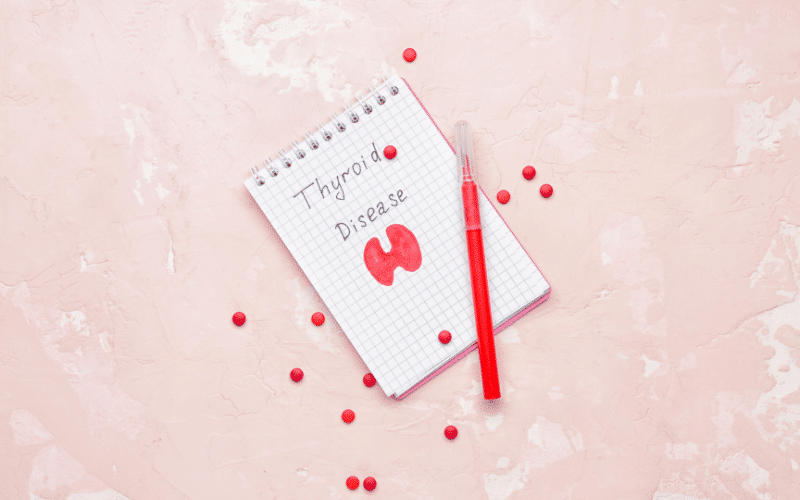Frequently Asked Questions about Thyroid Cancer

1. What are the early signs of thyroid cancer?
Early signs of thyroid cancer often include a lump or swelling in the neck, changes in voice, difficulty swallowing, and possibly pain in the neck and throat. It’s important to remember that these symptoms can also be associated with non-cancerous conditions, so experiencing these symptoms doesn’t necessarily mean you have thyroid cancer. Always consult with a healthcare professional for an accurate diagnosis.
2. Can thyroid cancer be cured?
Yes, most types of thyroid cancer are highly curable, especially when diagnosed and treated early. The overall survival rates for papillary and follicular thyroid cancer, the most common types, are excellent. Medullary thyroid cancer and anaplastic thyroid cancer have lower survival rates, but treatment options are constantly evolving and improving.
3. Does thyroid cancer spread quickly?
The spread of thyroid cancer largely depends on the type. Papillary and follicular thyroid cancer usually grow slowly and are less likely to spread rapidly. Medullary thyroid cancer can spread to lymph nodes more readily. Anaplastic thyroid cancer is the most aggressive type and can spread quickly.
4. Is thyroid cancer genetic?
While most cases of thyroid cancer occur sporadically, some types can be hereditary. Familial Medullary Thyroid Cancer (MTC) is one such type. It is linked to genetic changes and tends to run in families.
5. How is thyroid cancer diagnosed?
Thyroid cancer is typically diagnosed through a combination of physical examination, imaging tests, and a biopsy. Blood tests and genetic tests may also be performed to help confirm the diagnosis.
6. How is thyroid cancer treated?
Treatment for thyroid cancer usually involves surgery to remove part or all of the thyroid gland. Other treatments may include radioactive iodine therapy, external radiation therapy, chemotherapy, hormone therapy, or targeted therapy. The treatment plan is customized for each patient, taking into account the type and stage of the cancer, patient’s overall health, and their personal preferences.
7. Are there lifestyle changes I should make if I have thyroid cancer?
Leading a healthy lifestyle can aid in recovery and overall well-being. Regular exercise, a balanced diet, adequate rest, and abstaining from tobacco and alcohol are recommended. It’s also essential to take any prescribed medications, including thyroid hormone replacement, as directed by your doctor. Emotional health is equally important, so consider joining a support group or seeking psychological counseling if needed.
Conclusion: Unraveling the Complexity of Thyroid Cancer
Understanding the complexity of thyroid cancer is the first step towards a successful treatment journey. This piece has highlighted the four primary types of thyroid cancer – Papillary, Follicular, Medullary, and Anaplastic, each with its unique characteristics, risk factors, and treatment options.
In a nutshell, while the majority of thyroid cancers, PTC and FTC, tend to be less aggressive and have a promising prognosis, MTC and especially ATC demand a more careful and aggressive management approach due to their comparatively rapid progression.
Irrespective of the type, early detection remains a cornerstone in managing thyroid cancer effectively. Regular self-exams, a keen understanding of risk factors, and timely consultation with a healthcare provider are key in the early detection process. Diagnostic measures like physical examinations, imaging tests, biopsies, and blood tests play vital roles in not just identifying the presence of cancer but also in staging it and planning the treatment.
Treatment options for thyroid cancer are extensive and evolving. From surgical interventions to radioactive iodine therapy, chemotherapy, targeted therapy, and lifelong hormone replacement therapy, the choice of treatment is based on various factors including the type and stage of cancer, patient’s age, overall health, and personal preferences.
Living with thyroid cancer undeniably poses challenges but remember, with the right support and resources, one can navigate the survivorship journey and lead a fulfilling life. Embrace the journey, reach out for help, and remember, you’re not alone in this.
In the end, our understanding of thyroid cancer continues to grow, and with it, our arsenal to combat this disease expands. By keeping ourselves informed and engaged, we can continue to improve outcomes and experiences for those diagnosed with thyroid cancer.